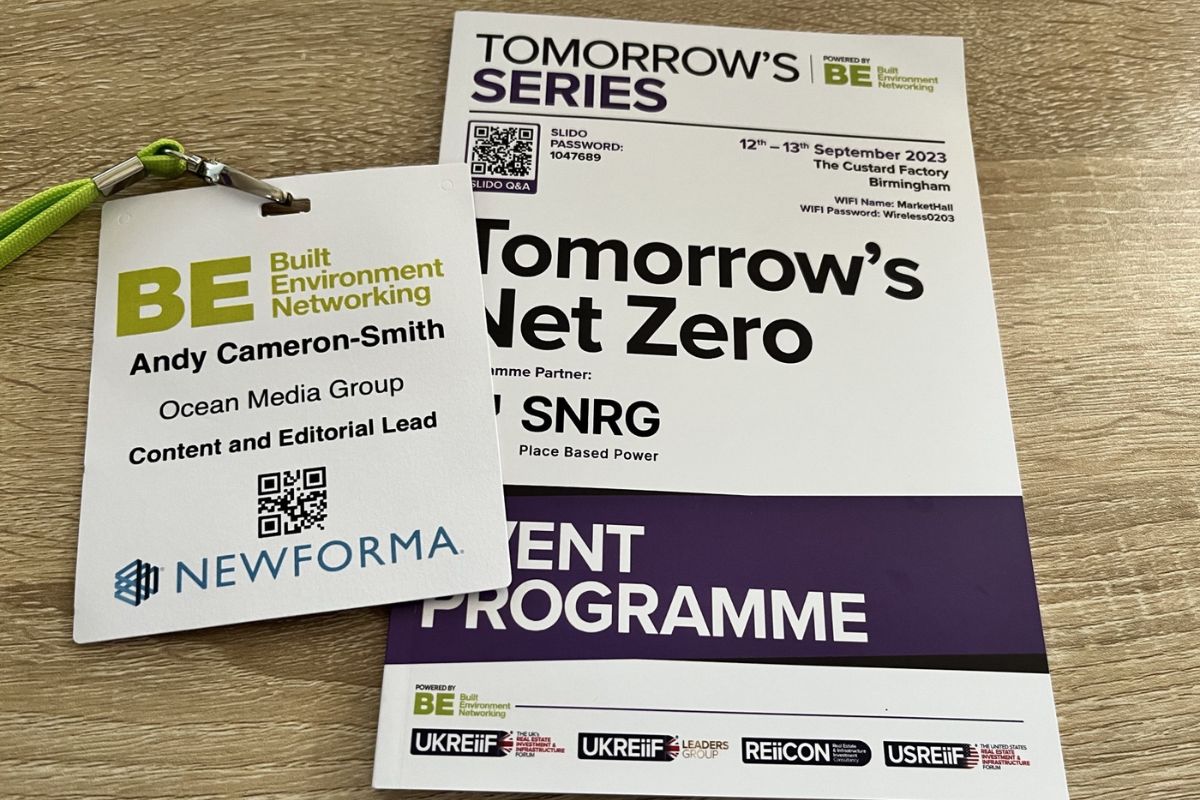Certainty, Consistency, Collaboration, Community and Communication
This week I travelled to The Custard Factory in Birmingham to meet and hear from professionals across the built environment on the progress of the UK and the sector on the path to decarbonisation at the Tomorrow’s Net Zero conference.
As always, it is good to take time away from the office, take stock and hear from others involved daily in the transition. Not only is it valuable to hear from people and their direct experiences, but it is also good to test your own thinking on what I have said before is the challenge of our times.
I had some clear takeaways from the sessions I was able to attend on the first day of the two-day event, which I think are all linked and not just because it is nice alliteration for a headline.
Certainty – I got the message loud and clear, especially from the speakers from the finance and investor community that they want to clearly understand the government’s approach to the decarbonisation agenda and understand the parameters that they will be working within. Essentially, they are looking for a confidence (another c) in the market that this change is happening and that it will work for their long-term investment models and that policy and regulation will not alter massively. We are often told there is money ready to invest, and most of the funding for the transition will come from private sector finance, so the ask is understandable, people must understand what they are investing in, and what that return will mean to them and wider society. It was also raised in one session that we all need to have clarity on what net zero means, and that we are all working to the same definition. Important when we are looking at buildings and the variety of buildings we will and have built already.
Consistency – this again built on the regulation theme. It was noted in a couple of sessions that recent political chatter on net zero and ongoing media coverage in certain sections of the press is questioning the long-term plan to reach net zero. A change of this magnitude will always have to operate against dissenting voices but it has become a bit of a crescendo in recent months. One session implored that we need a concerted effort to counter some of these claims, which many of the audience felt were misleading to people not actively working in this arena. We need to know that we are all heading in the same direction on this subject.
Collaboration – this is always raised at any event I attend on the transition. The scale of what we have to achieve in the net zero transition means that we can only do this by working in partnership. No one organisation, no one technology and no one government can deliver net zero in isolation. The energy system is so interconnected we must ensure all parties work in tandem. That means organisations are going to have to work together. We need to relook at what we mean by competition. Net Zero is unique in that it is not who gets there first that “wins”, we only win when we all get there.
Community – came across as a key theme. When we consider in housing and the built environment that change does not happen in individual buildings but to areas, how community is defined and then engaged with becomes an important component of the transition. There was one very interesting conversation about how you define community. Is it just a selection of interconnecting streets or is it wider than that and more to do with shared interests. As I say, it is always good to challenge your own understanding and view set when attending such events.
Communication – this is where I think it all connects. All the points raised above need clear communication to be effective – clarity of vision, a consistent narrative, communicating mutual benefits, engagement with communities – it all needs effective communication. And for me, we need to ensure we use language that all parties understand. Yes, there are real technical and economic angles to tackling climate change, but we also have to have the ability to explain clearly WHY we need to do this. We can’t afford a subset to discuss and then impose. Without education and then engagement we risk not bringing people with us. We can presently see some trying to drive climate change as a culture war (eco-zealots anyone?). We simply can’t afford to let that happen. Speaking human on this topic could be the most important thing we do in the transition. But I would say that as a communicator…
To conclude a very worthwhile day and a good learning day. We need to make sure we keep having these conversations. As I say, net zero is not a competition, it is a challenge for all of us to overcome. We do need to collaborate to deliver.
Andy Cameron-Smith is content and editorial director at Unlock Net Zero
